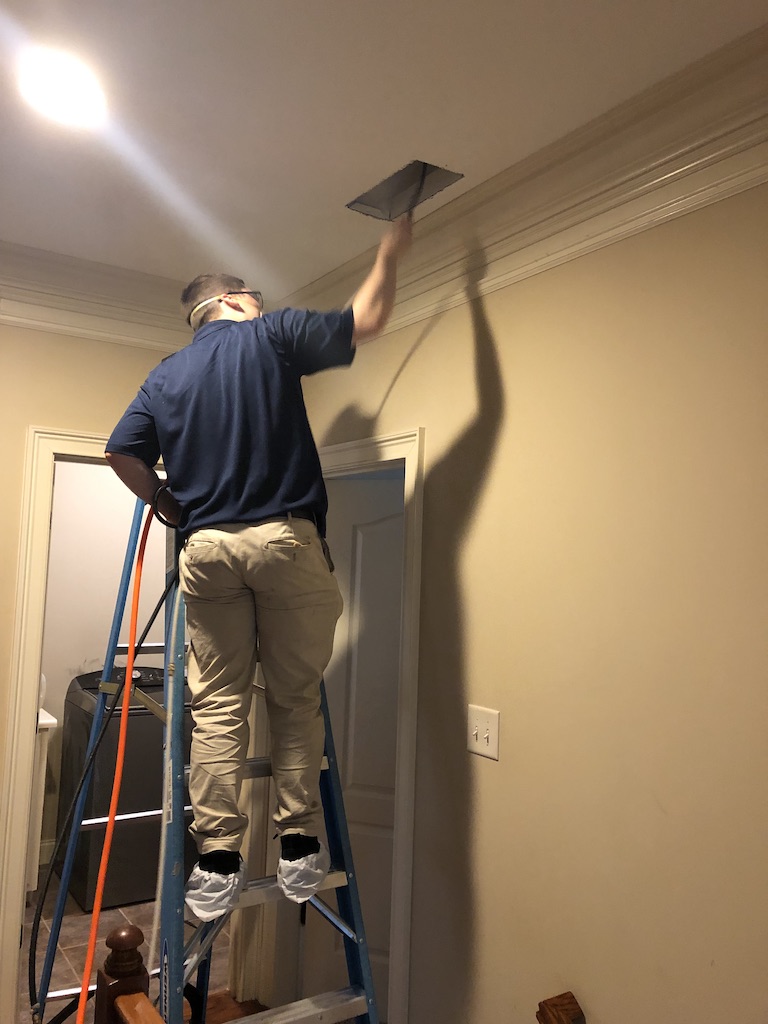Choosing the appropriate HVAC contractor is a critical step in guaranteeing your home's heating and cooling systems function effectively and effectively. Whether installing a fresh system, upgrading an outdated one, or just maintaining your current setup, the contractor you choose can make all the difference. With so many options available, it can be challenging to find a capable professional who satisfies your specific needs.
In this resource, we will guide you through key considerations to aid you pick the ideal HVAC contractor for your home. From understanding what HVAC systems are to recognizing the significance of indoor air quality, you will gain insights into how to arrive at informed decisions. Moreover, we will explore common HVAC problems and their remedies, seasonal maintenance advice, and how to optimize your system's efficiency, all of which are essential aspects to evaluate when evaluating potential contractors.
Comprehending HVAC Systems
HVAC stands for Heating, Ventilation, and Air Conditioning. It refers to the technology used to control the interior environment of residential and business spaces. An HVAC unit is created to provide comfort by adjusting temperature, moisture levels, and air quality, making it vital for ensuring a sanitary and comfortable space. Knowing the components of heating, ventilation, and air conditioning units helps property owners and establishments decide on wise determinations about setup, maintenance, and improvements.
The main elements of an HVAC setup consist of a furnace or boiler for heating, an AC unit for air cooling, and airflow systems for air distribution and air cleaning. These components function collectively to make certain that the air in a building is satisfactory, well-circulated, and devoid of pollutants. In addition to temperature control, HVAC systems can also control dampness levels and remove dust, pollen, and other irritants to enhance the quality of indoor air.
Frequent maintenance is crucial to the performance and durability of an Heating, Ventilation, and Air Conditioning unit. click this over here now includes routine checkups, maintenance, and appropriate fixes to prevent frequent issues such as breakdowns or inefficiencies. Residents and business owners should be proactive in their heating, ventilation, and air conditioning maintenance to not solely ensure satisfaction but also to lower utility costs and prolong the lifespan of their systems. Knowing how HVAC functions is the initial step in identifying when it requires care and how to select the best technician for the work.
Frequent HVAC Issues and Solutions
One of the most frequent HVAC problems is poor heating or cooling. This can stem from a variety of factors, like contaminated air filters, duct leaks, or improper thermostat settings. To address this problem, regularly monitor and update air filters every 1 to 3 months and ensure that vents are clear. If the issue persists, it may be essential to examine the ductwork for leaks or have a specialist evaluate the performance of your HVAC system.
Another common issue is odd noises emitted by the HVAC unit. These sounds can suggest a variety of problems, from loose components to significant mechanical failures. Pay mind to any banging, rattling, or high-pitched whistling noises. If you hear these sounds, it is advisable to turn off the system and contact a licensed HVAC contractor to properly diagnose and resolve the issue before it causes more serious damage.
Finally, poor indoor air quality can significantly impact your comfort and health. Symptoms like allergies, respiratory issues, or stale air may suggest that your HVAC system needs maintenance. To improve air quality, think about upgrading to high-efficiency air filters, adding air purifiers, or ensuring that your system is in good condition with regular cleanings. Boosting ventilation and humidity control can also lead to a healthier indoor environment.
Selecting your Best HVAC Solution
Choosing an appropriate HVAC solution for the house will be crucial for maintaining the comfort while ensuring energy effectiveness. Start by assessing your dimensions in the environment, because a proper heating as well as cooling system should correspond the size of the home. An small system can fail to maintain satisfactory climate, and an excessive system can lead to rapid cycling, increased maintenance issues, along with higher energy bills. Consulting with professional for calculate your appropriate size using a load evaluation can support your decision in making an educated decision.
Then, think about the different kinds of HVAC systems to choose from. Options consist of whole-house air units, heat transfer systems, ductless mini-split systems, and geothermal heating & cooling. Every option carries its advantages and limitations based on the home’s layout, climate, and energy efficiency goals. Exploring these possibilities can help you comprehend which system best serves your lifestyle & budget and providing adequate heating & cooling.
In conclusion, consider regarding energy efficiency ratings during the process of deciding on the HVAC solution. Look for units with high Seasonal Energy Effectiveness Ratio (SEER) ratings in the case of air units as well as Heating Seasonal Efficiency Factor (HSPF) ratings in the case of heat pumps. Energy-efficient models might come with a higher upfront cost yet can bring about significant savings on the energy expenses over time. Merging energy-efficient equipment with smart thermostat technology can increase the HVAC system's performance and comfort levels across seasons.

